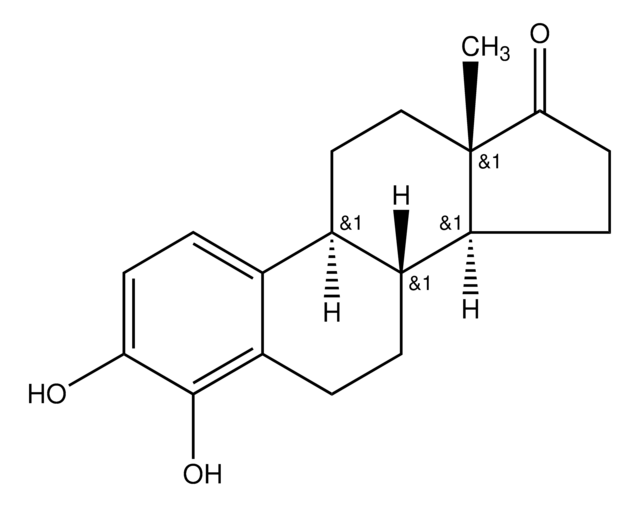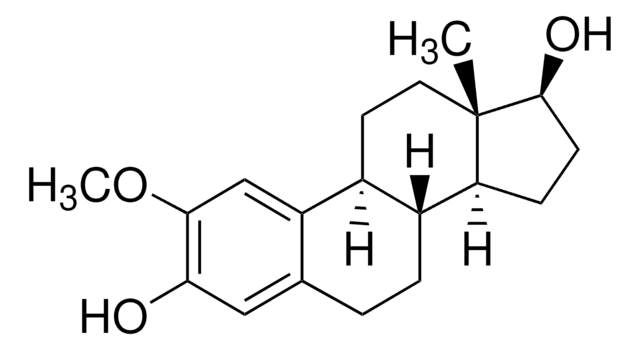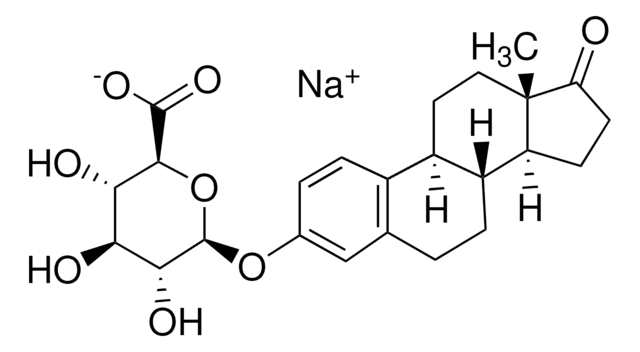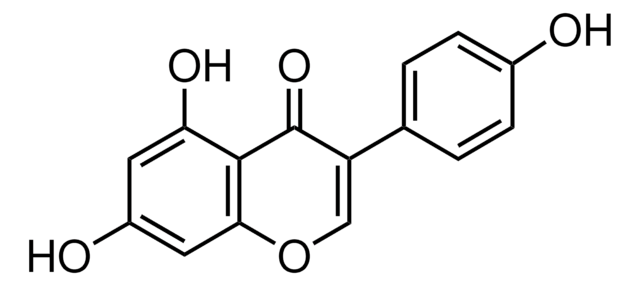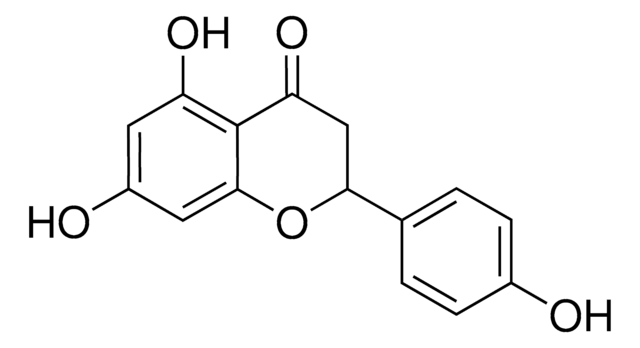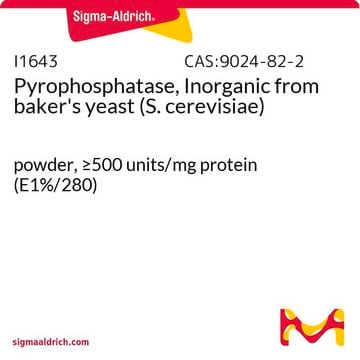H4637
4-Hydroxyestradiol
Synonym(s):
1,3,5(10)-Estratriene-3,4,17β-triol
About This Item
Recommended Products
storage temp.
−20°C
Quality Level
SMILES string
[H][C@]12CC[C@]3(C)[C@@H](O)CC[C@@]3([H])[C@]1([H])CCc4c(O)c(O)ccc24
InChI
1S/C18H24O3/c1-18-9-8-11-10-4-6-15(19)17(21)13(10)3-2-12(11)14(18)5-7-16(18)20/h4,6,11-12,14,16,19-21H,2-3,5,7-9H2,1H3/t11-,12-,14+,16+,18+/m1/s1
InChI key
QOZFCKXEVSGWGS-ZHIYBZGJSA-N
Gene Information
human ... ESR1(2099)
rat ... Ar(24208)
Looking for similar products? Visit Product Comparison Guide
Biochem/physiol Actions
Signal Word
Warning
Hazard Statements
Precautionary Statements
Hazard Classifications
Carc. 2
Storage Class Code
11 - Combustible Solids
WGK
WGK 3
Personal Protective Equipment
Choose from one of the most recent versions:
Already Own This Product?
Find documentation for the products that you have recently purchased in the Document Library.
Our team of scientists has experience in all areas of research including Life Science, Material Science, Chemical Synthesis, Chromatography, Analytical and many others.
Contact Technical Service